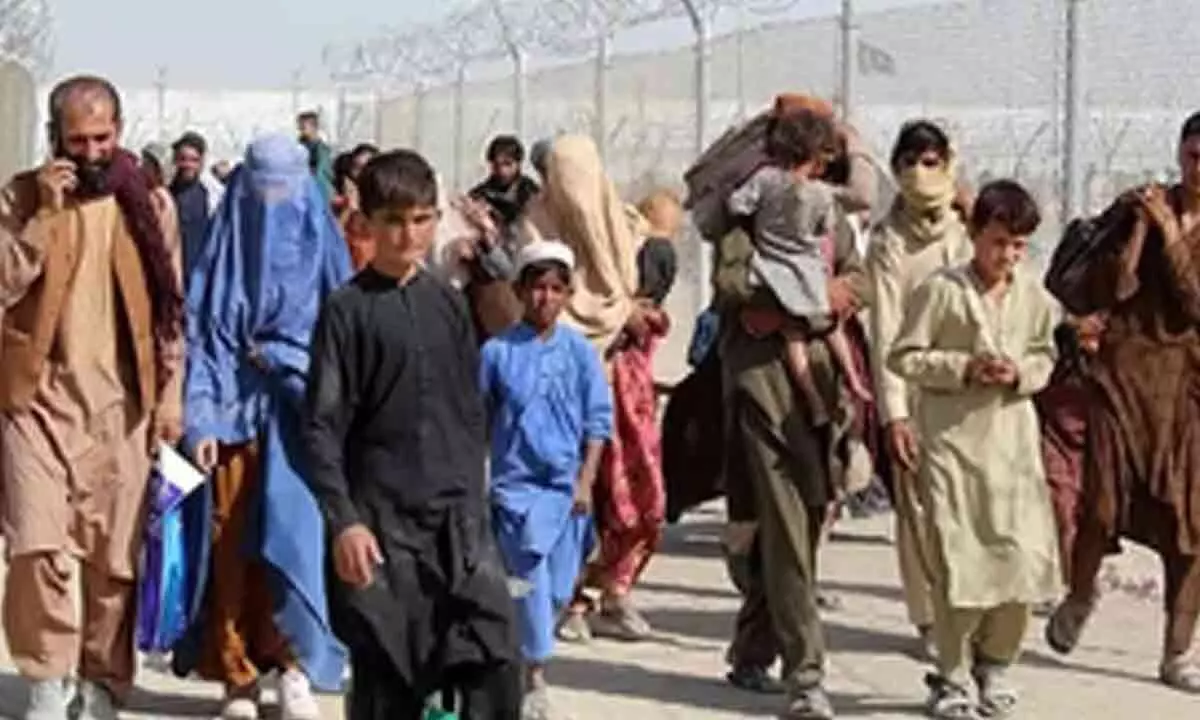Pakistan won’t compromise on national security with aliens: Interim PM
Share :

Pakistan's interim Prime Minister Anwaarul Haq Kakar said the country currently stood at the crossroads of history, insisting that it could no longer continue to compromise its national security by accommodating a massive number of undocumented and illegal immigrants termed as “aliens”.
Islamabad : Pakistan's interim Prime Minister Anwarul Haq Kakar said the country currently stood at the crossroads of history, insisting that it could no longer continue to compromise its national security by accommodating a massive number of undocumented and illegal immigrants termed as “aliens”.
In an article written for the Telegraph newspaper, Kakar said that the goal was to build as better and safer country that benefits its own people.
“Our ultimate aim is to build a safer, more peaceful and prosperous Pakistan -- with associated benefits for out own people, for the region, and the wider world."
He highlighted that Pakistan’s actions to remove illegal aliens from its soil are in the same adaption to a new era of mass migration linked to conflict, climate change, and economic opportunism.
Referring to the UK government’s plans to deport illegal immigrants to Rwanda, the interim Prime Minister said that this was also a sign of that pressure.
“The heated debate surrounding the proposal and the many efforts to derail the scheme illustrated the huge challenge for policymakers as they sought to balane human rights with hard realities."
Explaining Pakistan's version of the problem, Kakar stated that the magnitude of the issue at hand is different from other nations.
“Pakistan’s problem is of a different magnitude altogether. Over the last three to four decades, between four to five million migrants (roughly the population of Ireland) have arrived. Many have no rights to remain. Despite being a non-signatory to the 1951 Convention of Refugees (and its 1967 Protocol), we have generously accommodated the single largest caseload of refugees.
“Hospitality is in Pakistan’s DNA and that was why the country had fulfilled its legal, moral and humanitarian obligations, and would continue to do so. We have worked very hard, over a very long period of time, to accommodate as many as we can while giving those no rights to remain ample opportunity to leave voluntarily," he added.
Kakar regretted that despite multiple attempts and opportunities provided to the illegal immigrants to repatriate voluntarily, coupled with multiple attempts and drills by the government to register those who remained undocumented, a massive number of illegal immigrants aka aliens had constantly and persistently refused to validate their status and chose to stay in the shadows.
He further maintained that the country benefited from many hardworking and law-abiding migrants, but added that the overall impact and cost of socio-economic and security has been staggering.
“Many work on the black market, paying no tax, depressing wages for legitimate workers. They are also susceptible of exploitation by the criminal underworld, with all its disturbing links to terrorist organizations operating in the region.
“Since August 2021, at least 16 Afghan nationals had carried out suicide attacks inside Pakistan, while 65 terrorists killed in encounters with security forces, mainly in the bordering region, were identified as Afghans.
“No responsible government can ignore such concerns. Whenever we raised this with the interim Afghan government, they advised us to look inwards. We have finally decided to heed to their advice to put our house in order," he said, adding that Pakistan’s painstaking repatriation programme had attracted predictable criticism from those who he said did not understand the complex history of the problem.














